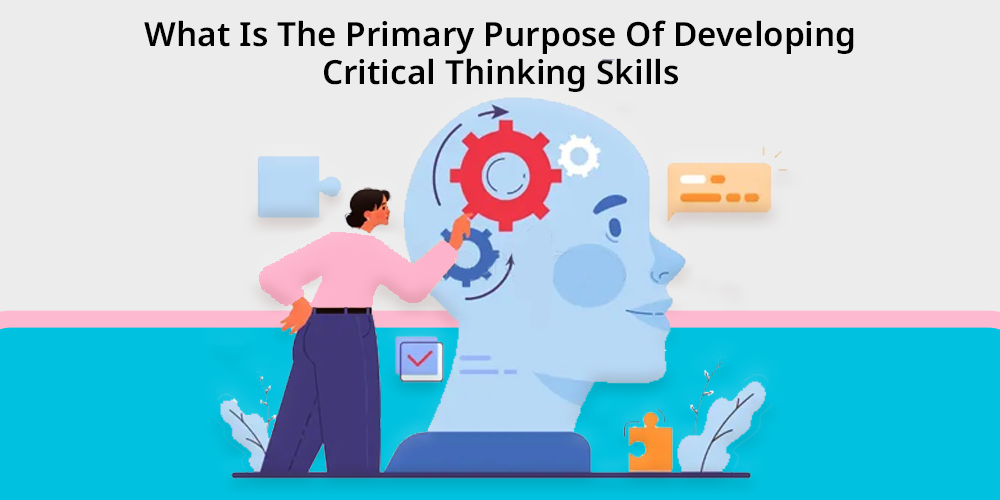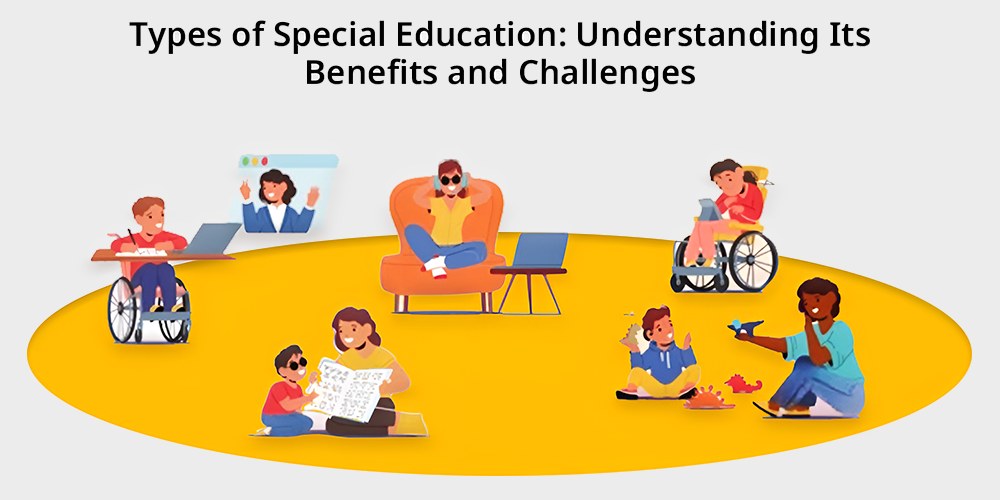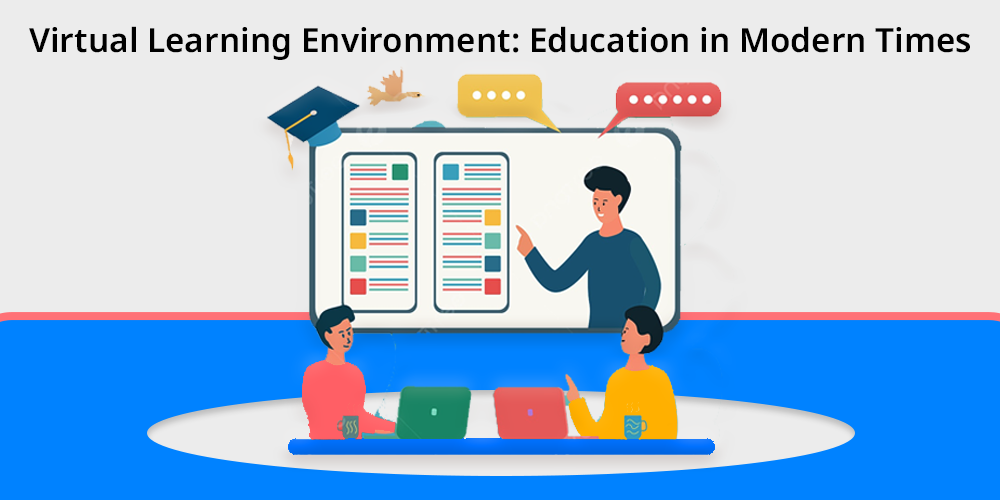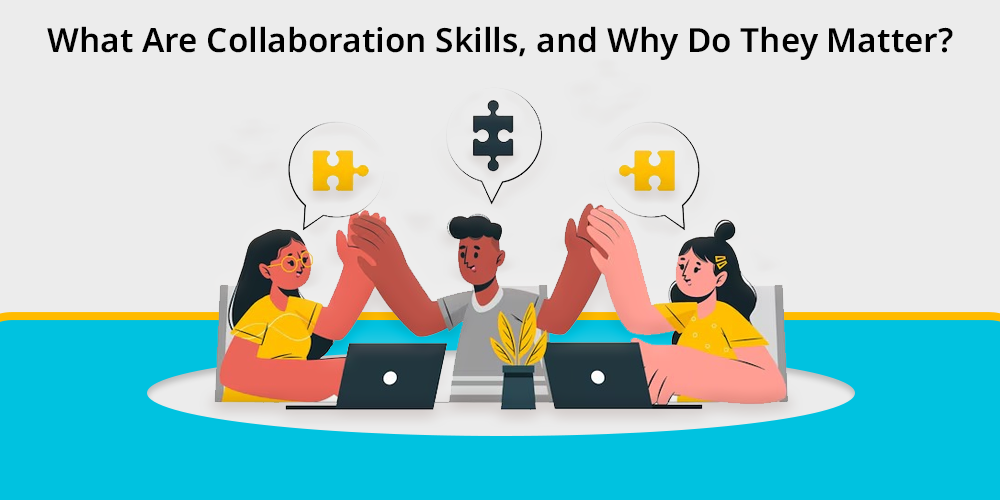
The current information age demands fast choices besides complex difficulties. And therefore, critical thinking has evolved beyond its previous value status to mark its space deliberately.
Through critical thinking you can solve math problems, analyse political issues and decide major life changes. This might look like a one stop skill to you. Isn’t it? Well, it is because this skill helps you deeply engage your mind, think logically, and act wisely in all circumstances.
The process of critical thinking exceeds passive intelligence by challenging beliefs while looking for proof and studying final results. The ability exists beyond academic spaces and belongs dynamically to students, professionals, and all other people who lead daily lives.
Knowing its immense demand, let’s learn how to develop critical thinking skills in students for their better future.
The following article examines critical thinking theory while emphasizing its essential qualities. Not ending there, it also introduces its essential role in building both personal competence and work-related abilities.
Contents
What is Critical Thinking?
Critical thinking entails investigating evidence to challenge what we hear, and generate logical and well-considered assessments. Skilled conceptualization along with successful application enables individuals to analyze information gained from experiences and reasoning.
Without concrete observations and effective communication no one can exercise critical thinking skills. The practice of critical thinking includes neither cynicism nor negativity. It brings active attention, rational thought, and open-mindedness to the table.
You need to develop your own ideas instead of letting others control your mind. Or else, social pressure determines your decisions. This is what critical thinking is for.
Key Aspects of Critical Thinking
- Curiosity: A person who explores using their desire to ask questions demonstrates curiosity. Here are some of the activities to encourage curiosity in children.
- Objectivity: Avoiding personal bias and prejudice while dealing with societal issues is what we call to have objectivity in thoughts. This gives a rational view for generating solutions.
- Analysis: Using analysis people create smaller pieces from complex data sets. They comprehend these major information into minor subsets to better understand and incorporate.
- Evaluation: Assessing evidence, arguments, and solutions while evaluating them precisely depicts one of the standard features of critical thinking.
- Inference: The process of making conclusions from existing available data qualifies as inference.
- Explanation: Explanation requires a straightforward presentation of logical processes in which arising problems were built and found solutions to.
- Self-regulation: Reflecting on one’s own beliefs, values, and thought processes and managing it consciously is what we call self-regulation. Again, it is very crucial to form the base of critical thinking.
What Is The Primary Purpose Of Developing Critical Thinking Skills?
Purposefully, critical thinking helps people find their way through complicated realities by making decisions that incorporate knowledge. It also gives us the ability to understand today’s problems and develop ourselves for real life scenarios.
1. Better Decision-Making
Critical thinkers choose superior responses based on unbiased decision-making instead of using emotions, impulses or instinct. Life’s different choices demand that we both collect data about our options and predict what each choice may result in.
2. Problem-Solving
People who think critically achieve improved success in their academic tasks and everyday difficulties through better problem-solving techniques. Somebody who thinks critically divides complex projects into smaller operations before evaluating different potential solutions from multiple angles to decide.
3. Enhanced Communication
A person who thinks critically becomes a more effective communicator. They understand their thought process and convey it in straightforward ways. Studies show that active listening progresses from critical thinking analysis enabling people to create both personal and professional relationships.
4. Boost Creativity
The process of improved mutual support system development through creative thinking skills forces people to identify new explanatory viewpoints. This gives them an ability that challenges traditional beliefs and lets them welcome ideas that are distinctive but still better.
5. Control on Cognitive Abilities
Critical thinking develops personal control over how students think based on their cognitive abilities. The development of critical thinking enables us to notice emotional and intellectual distortions before sketching childrens’ mental health.
6. Reflection on Self-Awareness
Critical thinking depends strongly on self-awareness. Analysis of individual beliefs and behavioral sources enables individuals to connect their fundamental values to their actions and modify mistakes.
When people reflect upon themselves they direct their ethical development toward personal advancement.
7. Career Advancement
Candidates who display critical thinking abilities to impress their seniors sooner achieve career advancement. Their strong abilities in team management, workforce decisions, and problem solving reflect their real potential.
Organizations primarily select candidates who show independent thinking, problem-solving abilities and strong logical decision-making skills.
8. Lifelong Learning
The practice of critical thinking helps people develop lifelong learning and an open mind to integrate new environmental information successfully.
People who practice critical thinking develop the belief that directed work effort leads to the growth of intellectual capacity and skills.
How to Develop Critical Thinking Skills?
Critical thinking functions like other abilities which any person can develop expertise through deliberate learning combined with training.
1. Challenge Your Prior Knowledge
You should continue questioning the absolute truth of existing knowledge. Examine previous beliefs by comparing them with fresh information. Admitting the potential imperfections in your current level of understanding creates a gateway to reach more advanced thought processes.
2. Comprehend The Issue
Mix up your views by studying various angles of the data from trusted sources in a fully comprehensible environment. Formulate judgments only after completely grasping the subject matter. A hasty understanding produces feeble conclusions.
3. Ask Questions
Curiosity fuels critical thinking. Ask open-ended questions like “Why?”, “How?”, and “What if?”. You should test your beliefs by looking at various possibilities and analyzing underlying reasons.
4. Be Skeptical Of Your Findings
Aspirations grounded in doubt result in stronger conclusions. Everything about our personal convictions seductively pulls us to love them. Engage with individuals and support networks who push your intellectual capacity toward growth. Check for objections and verify your logical approach.
5. Create a Learning Environment
Through inquiry-based discussions people develop their critical thinking abilities in a positive learning environment.
Work with dependable research material and critical friends who strengthen your current beliefs and create new intellectual pathways. Read extensively and participate in debates while attending workshops and asking for feedback from others.
Advantages of Critical Thinking Skills
Critical thinking accelerates many basic skill developments needed in a person to live their life with contentment and satisfaction. That’s why organizations with multi-cultural opportunities are leveraging such talents in their journeys of growth.
1. Success On the Path
Success requires people to make good choices, solve problems and consistently learn to achieve personal, academic, and work-related goals. These competencies build their foundation on critical thinking ability.
2. Confidence Boost
The study of logical methods for belief assessment leads people to develop stronger self-esteem in their decision-making ability. The power of independence allows individuals to pursue their stands on a discussion being done in various settings of life.
3. Up-to-date Knowledge
The evaluation process of critical thinkers takes place through a continuous system to update their existing knowledge about specific conditions. People who think critically avoid misleading information, feeling ready to accept learning possibilities quickly and adapt to new subject developments.
4. Dependency on Ownself
Self-reliance helps people develop superior emotional stability and stronger resilience. People who think independently base their choices on self-evaluation and decision making instead of conforming to what others want.
5. Better Self-Awareness
Through private belief examination with critical thinking individuals can discover obscured biases that aid in revealing fundamental belief connections. Research shows that understanding your own inner self builds emotional intelligence which leads to better health benefits.
Examples of Critical Thinking
- Analyzing Daily News: When analyzing news articles readers need to detect subjective content and evaluate media sources while confirming information accuracy.
- Problem-solving In Work Settings: Workplace problem-solving requires evaluation of different strategies which enhance productivity levels.
- Making Personal Decisions: People make important personal choices after analyzing their advantages and drawbacks in decisions such as home purchases and career selections.
No matter how revolutionizing this may look, children today participate in making games and want to choose this as an actual profession. Let’s find out if studying game development is a promising career path. - Science and Analysis: Scientific thinkers design experiments and analyze experimental output through unprejudiced methods.
- Social Interactions: When people interact with others they should focus on comprehending different viewpoints and utilize wisdom during conflict management.
To Conclude Thoughts
Critical thinking abilities are more essential for today’s world than academic privileges because they apply to every level of our progress.
Humans use critical thinking as their main method of self-control through excellence in decision-making, problem-solving and mental evaluation.
People who think critically in their workplace achieve exceptional performance, develop stronger relationships, and gain mental growth.
And as we saw in the article given, it is not going to the moon to learn and exercise these skills in our daily lives. Then, what holds you back? Go and explore the limitless possibilities of critical thinking while expecting openness.

 Thailand
Thailand

